|
Last week I launched new more and regular blog on Substack and you can find it here.
I plan to do more regular updates there and will keep this site going for longer articles and photos.
0 Comments
How May 5th is celebrated in The Netherlands and how Lions Bay resident Norman Kirby played a major role during the country’s liberation in 1945
Early May is springtime in The Netherlands, just like it is in Canada. The weather warms up, the trees start to blossom, the flowers come out and the month sets off with a few important public holidays. On May 4 at eight in the evening, the Dutch remember their 240,000 war dead which were almost all civilian and of which 104,000 Jewish, with solemn and sober ceremonies including a minute of silence. The next day however it is ‘Bevrijdingsdag’ or ‘Liberation Day’ where the Dutch celebrate how on May 5, 1945 the German forces accepted the terms of their surrender to the Canadian generals Foulkes and Kitching at a small hotel in the city of Wageningen. What does May 5 these days look like? It is a day full of festivities all over the country where each municipality hosts music events, celebrations, markets and public parades. It is also the only other day – other than King’s Day on April 27th – where most Dutch homes will fly the national red-white and blue from their homes, many adding the orange banner on top which represents the colour and name of the royal family. But most importantly it is also the day to honour the veterans and war heroes who traditionally participate in parades across the country, and many Canadian, American, British, Polish and Dutch veterans have attended these events in recent years. And even though the war’s end is now 75 years behind us, these men are still cheered, honoured and celebrated as if the liberation took place only yesterday. As Lions Bay residents we can be proud that one of them is Norman Kirby who landed on the beaches of Normandy in June 1944 and fought all the way up to the liberation of The Netherlands and finally Germany. Had it not been for the Coronavirus crisis impacting us this year, Norm would have been in The Netherlands attending the liberation festivities, celebrating and commemorating 75 years of freedom. There is a reason that the gratitude for these war heroes runs so deep. The last year of the war inflicted a terrible toll on the still occupied western and northern parts of the country. Cut off from all supply lines a famine spread across the entire country, in particular the cities, which killed thousands and left many to survive on things like flower bulbs and tree bark. It was compounded by endless efforts to arrest and haul off young men to Germany for forced labour. If this were not enough, retribution for even the smallest infractions against the Nazi occupiers was often summary execution. Collective punishment was handed out to civilian populations where the German occupier often shot groups of random people and left their corpses on display for everyone to see. And in the final weeks, when the war was effectively over the retreating Germans pointlessly blew up historical buildings, bridges and even inundated some areas creating a fresh flow of refugees. It was a horror winter, so one can imagine that the sight of Canadian soldiers marching into a Dutch village or neighbourhood resulted in total elation. A five-year nightmare had come to an end. Dutch flags were brought out, the alcohol freely flowed and Dutch streets exploded in spontaneous dancing and wild celebrations.
It is this spirit of gratitude and happiness that the Dutch managed to preserve over the decades so that now even younger generations participate in all the fun and excitement on May 5. All of course not without a key purpose: the essence of Liberation Day is to realize how easily democracy and freedom can be lost and what an incredible price there is to pay to regain these. For Canada the war in Europe was on the other side of the ocean and as Norm Kirby himself often said, after he returned from the war everybody carried on and forgot about it. The Dutch too forgot, on purpose or not, the memories of the horrors were too fresh and too gruesome and were largely supressed while everyone engaged in rebuilding a nation that was reduced to rubble. But in the later years with the elapse of time, the opening up of archives and certainly the advent of the internet made it possible to remember again and bring the war back to life for both the young and old.
And so it is in 2020, seventy-five years after the conclusion of World War II that we remember the fallen, the wounded, the heroes, and all that contributed to rid the world of the terrors of Nazism. We should all be proud that we get to share a village with one of those veterans who at a very young age risked his life and contributed to the liberation that is celebrated on May 5. Let’s all use this day to remember and reflect and thank our great neighbour, Norman Kirby.
Here is a great interview with Norman, a few weeks ago:
Going through the current Corona-crisis we often hear references back to earlier disasters that came our way, and how they resulted in deep financial turmoil. I lived through two. The Asian currency crisis in 1997-98 put a first and serious dent in the boom times of the 1990s and in the process solved a few major problems like for instance traffic jams in Bangkok. As it happens I was there trying to restructure a billion dollars of debt for a large Thai conglomerate which had revenues in Thai Baht and debt in US dollars, lots of it. Management’s thinking had been that a timely phone call from the Finance Ministry would prevent a meltdown of the company. That call never came, markets unfortunately don’t work that way, and we were sweeping the floors while the taps were open, so to speak. I will never forget standing in front of a Bloomberg terminal seeing the crisis unfold in real-time as the Thai Baht plunged to unprecedented levels. At the same time my employer UBS had embarked on a merger with its nearest competitor, Swiss Bank Corporation, and for most of us on the UBS side the writing was on the wall. So, this crisis had all the right and painful ingredients: maximum financial chaos, job uncertainty and of course serious stock portfolio turbulence.
The financial crisis of 2008 began one morning during a meeting discussing a biotech deal when someone pointed out that while we were talking Lehman was collapsing. This ironically was the bank with whom we had partnered advising on the restructuring deals some 10 years earlier in South-East Asia, now they were gone. At this point in time I was a self-employed advisor and investor and probably in an even more vulnerable position than in 1998. The stock portfolio, now largely containing US and Canadian stocks came under some real pressure. At the same time, I was putting a financing together for a company that would successfully exit in 2011, something we did of course not know during that dark late summer of 2008. The 2020 Covid-19 wipe-out is comparable on many levels. Crises emerge because vital information is often suppressed on purpose and once the information seeps out a cascade of events ensures collapsing stock markets, failing businesses, job losses, government intervention and a realization that things are going to be very different going forward. I recall exactly the same things in 1998 and 2008 and it comes with the clear realization that none of this is your fault, it is a larger power that has shaped the turn of events and there really is nothing you can do to change the dynamics in your favour in the short-term. There is however one redeeming feature: you do not have to blame yourself. You can always hit yourself up if you are not doing all that well during the good times: what did I miss? Was I not aggressive enough? Everyone else seems to be doing quite well, so the one person to address deficiencies with is often yourself. But not during a crisis: you are enveloped by a flood and it is totally outside your control. And however disastrous, such an event can be quite healing. Why? The first thing is that you can now throw all assumptions and ideas of life and career before overboard, they have been reset for you by something else. And while trying to manage through the mess with the resources you have, you can start drawing the map of the next steps on a completely blank slate that someone else has wiped clean for you. Our idea to move to Canada was shaped in 1998, right in the middle of the currency crisis and merger activities. We could do anything we liked - in fact we had to in a way - as the foundations of certainty and clarity were collapsing around us. And while it may sound unpleasant it tends to unleash creative and out of the box thinking, simply because you have to. True, we were young and had no kids at that time, but the logic applies to any crisis and for anyone, the difficult decision to leave the past behind has been made for you and now you can chart new ways that will take you forward. As it is unfolding Covid-19 is manifesting itself as a deeper crisis, as of today we don’t know nearly enough about the virus and how it propagates and there is no shortcut to a vaccine soon. It has not only created a financial crisis deeper than ever, the deadly attribute to redefine how we go about life in a physical way will make some things even more complicated. And therein lies the key to getting out of this, the deeper the crisis, the higher the potential to reinvent ourselves. It has already been called a ‘re-set’ but you can also argue it is a ‘re-balance’ which is where I am leaning. We will continue on our paths, no moving continents again yet, but we are going to tweak the way we work, invest and engage with others. It is a great time to do just that.
So, it dawned on me when Kamala Harris exited the race. Why would a well-funded senator, relatively young, experienced and telegenic not make it? And lose to a significantly older crowd? And looking further back, why did Hillary Clinton not win in 2016? It got me thinking and I started to develop a theory around what you need, to be a successful contender for the presidency. Of course, any idiot can participate and run, but what is it that in the end pulls the lever for electoral success?
There are it seems three core qualities to become President of the United States. First you need a resume, a strong career ideally in politics that gives you the required experience to be the nation’s leader. But you also need to be able to tell people why you want that role, and for that you need to articulate a vision, a political mission or direction if you like. And thirdly, crucially as we will see, likeability: be a nice guy or girl who can ‘hang with the folks’ and show and call on endless reservoirs of empathy. In order to successfully contend the presidency, you will need at least two of these qualities, two and a bit is great, three is ideal of course. Less than two: forget it. Let’s try this thesis now. Ronald Reagan ticked all three boxes comfortably, an extremely likeable guy, a clear vision and mission-oriented plan and years in the actor’s union and as Governor of California he solidified his resume. He won two terms in Washington, the second one with a record majority. Bill Clinton? Again, he had done his homework governing Arkansas, was and is an extremely likeable folksy talker who connects easily with people. Maybe not enough of the vision part, but that is more than two boxes ticked already. Bill was a two-term president. George Bush Jr? Solid experience as governor, very likeable guy with the Texan drawl when needed, bit light on vision, but like Bill he clocked two terms. Obama? It has to be said, Barack was quite light on the resume part with only a few years as state legislator and senator, but he royally compensated that with an agenda for America’s future and being an all-around really nice honest decent funny family guy. The president that scores on less than two requirements is Donald Trump, in fact he manages one, barely. He managed the vision part by going after hot issues like immigration, less overseas wars and adjusting trade deals, ‘Make America Great Again’ of course presented a view of the future. But he is not even close to being likeable and his resume, even as a businessman, is quite arguably poor: not even a self-made man, something Americans like so much. Then why did he win? Trump was lucky to have an opponent who was also very thin on all three requirements. She build her resume on the basis of her marriage to Bill, had a very limited vision thing other than that it was her turn (which is why Joe Biden was relegated to the sidelines) and is by all accounts the furthest from being likeable, no warmth to speak of. The pairing of two incredibly weak contenders resulted in the outcome of 2016. It is fair to say that in that year the contest should have been 'Biden vs Romney' or 'Biden vs Rubio' or something like that. So, what about today? Joe Biden scores phenomenally on all three counts, I mean who would not want this lifetime politician over for a beer to chat about his views for America’s future? ‘Uncle Joe’ got ahead because Bernie Sanders was, while solid on experience and ideas, probably not all that likeable and his set of ideas where maybe a tad too divisive for the average Democrat. Elizabeth Warren is a bit harder to qualify, I think she is actually on par with Sanders and probably a bit more likeable, so it is odd that she lost, even in her home state. Maybe the experience or ‘being around long enough’ part is what did her in. So, let’s get back to Kamala and it is very plausible that her resume was too thin, but she really lost her mojo as a contender when her opponents dragged out the hard and cold prosecutor caricature: her likeability if it ever was there went straight down the drain. No, for likeability Pete Buttigieg was a much more viable candidate including the vision part, but mayor of South Bend, Indiana? Mwah, needs a bit more time building that resume. Feel free to run the three-part test past any of your past and future candidates and see if the ‘at least two, ideally three’ model works. For this November it seems all bets are off given the Covid-19 crisis, but under normal circumstances and according to this model, Joe Biden should be the dead-on favourite to put the White House back into the Democratic column. Photos: closest I came to seeing a president was visiting the White House in February 1999 doing the tourist tour. As I walked back all of a sudden there was lots of activity and I could just catch Bill’s motorcade heading across the bridge to Virginia for a speech. As I write our two daughters are dancing in the living room to the tunes of Don Omar, YG and Cardi B. We just had a long dinner at the table after an excellent pasta and shrimp dish cooked by our youngest daughter. And that after a day of hanging around the house where we realized none of us had left the Dorsman compound. The mandatory post-travel quarantine is long over for all of us, but somehow we miraculously enjoy the time together as the lockdown continues and no one feels a compelling need to go somewhere else. For sports, the daughters have turned the downstairs rec room into a yoga center, we have worked in the yard now that spring is here, and we barely have time to work our way through the recommended Netflix list. We basically finished The Crown and after two episodes dumped the grotesquely vulgar Tiger King. The mega visit to Costco last Friday obviated the need to go somewhere else and also made us realize that whatever the charms of downtown, the place has an eerie feeling now that everything has closed down.
So, we are happy where we are and as a family we have grown closer, with the oldest daughter back from university in The Netherlands while supporting our youngest one to virtually graduate from high school. It all seems to be working and indeed, we are able to do ‘real work’ in the mornings, but e-mail drops down quite a bit in the afternoons so we can go for a walk or do some work around the house. And we sleep lots, so it is almost like a family holiday without having to fork over a small fortune in airline tickets and Airbnb bookings. It all brings home an important point: are we living completely overscheduled and insane lives now that we are learning what a more balanced and home-based life looks like? Is this the re-set that everybody is talking about? Maybe it is and maybe we are getting some important lessons. As it stands, we have at least another six to eight weeks to see where it will take us. Will keep you posted.
A great biography sheds further light on one of the world's best football players
The debate as to who is the greatest football player will rage on forever, but the Dutch have long settled this question of course. Johan Cruijff (simplified Cruyff for international audiences) remains by far the best player ever and Dutch journalist Auke Kok penned a 640-page tome on the man who transformed not just the game, but also rose beyond it as an inspirational leader and individual who symbolized a new era of economic freedom and unprecedented individuality. The biography takes a few interesting themes and elaborates on these while following Cruyff’s career from childhood to his career start in the early 60s to his premature death of cancer in early 2016. The first theme is demonstrating the insane talent the man had as a football player, but noting that it would never have amounted to much had there not been a structure in which to display and use these talents. In the early 1960s, the years when Cruyff rose to prominence, Dutch soccer was an amateur sport, poorly organized and international results were practically non-existent. When Cruyff came on the scene at Amsterdam’s Ajax, the first attempts to professionalize the sport were only just underway and it was the emergence of Rinus Michels – who later was named FIFA’s coach of the 20th century – to lay the groundwork for disciplined football with plans, tactics and structure. It was in this framework Cruyff flourished as the increasingly well-oiled Ajax machine created the platform that enabled him to shine and lead in the delivery of three Champions League trophies as well as a World Cup for club teams. The Ajax model was replicated onto the Dutch national team which at the 1974 FIFA World Cup ended as runner-up, but with most of the world recognizing that the Cruyff-led side played the best football the world had ever seen. The duality of individual and team remained a constant throughout Cruyff’s career as player and coach, his brilliance could only shine in structured environments, but the clubs and teams on themselves would never have been able to shine without Cruyff’s brilliance. Kok’s book dives deep into the numerous conflicts and tensions that this dynamic generated, pointing to the successes it created, but also to the failures and missed opportunities. Cruyff’s deeply individualistic DNA just did not fit into any traditional structure. A similar dual dynamic underpinned Cruyff as person. Overly confident, intelligent, strong and at times arrogant, he was suffering from deep uncertainties and often used the weirdest rituals ahead of a game to quell the fears he suffered from. His uncertainty was most likely rooted in the early death of his father Manus and throughout life Cruyff tried to find a replacement for the father figure he missed since age twelve. But the uncertainty created by growing up in a family without a father manifested itself in a way that helped contribute to football’s rapid commercialization: Cruyff was almost paranoid about money and even as a well-established millionaire was suffering from deep concerns about his family’s security and well-being. This dynamic never played well in the Calvinist and sober Netherlands, many Dutch rolled their eyes over Cruyff’s hard and seemingly endless negotiations over contracts and commercial activities. However, if you read Kok’s book all of this was entirely logical in the context of Cruyff’s life and his awareness that he only had a short period of time to make money: Cruyff intuited economic uncertainty and was determined to be prepared for the worst. Despite his internal doubts, Cruyff always displayed extreme confidence and certainty in addition to an almost suicidal loathing of authority: many great career opportunities were destroyed in conflicts with referees, coaches and above all club directors. Any Cruyff fan – and I am certainly one – will attest that the deepest regret we all have is he never collected more than 48 caps for The Netherlands. A more pliant and collaborative Cruyff would have seen far more appearances in the Dutch national orange shirt and possibly more trophies and recognition. It seemed Cruyff accepted this outcome and in that provided evidence of his uncompromising personality. Financial certainty was there at his 50th when he stopped coaching altogether following a successful run at Barcelona. He focused on his charitable foundation and became a commentator on Dutch TV during which he appeared to elevate himself above everyone else with unfathomable analyses and remarks that became the staple of a number of books. “Football is simple, but playing simple football is very difficult” and “If I had wanted you to understand it, I would have explained it differently” became classics of Cruyff the philosopher. There was another dichotomy in his life: the consummate sportsman chain smoked throughout his career, something that no doubt contributed to cancer and his death at age sixty-eight. All his fans were devasted when his passing was announced and in particular the Dutch felt an incredible sense of loss. The pain was not just for a fallen sports icon, no, for a nation that had risen from the ravages of World War II, became an economic powerhouse and in the process had grown into a global vanguard of cool and hip individualism, it had lost the very symbol of that incredible rise. Born in 1947 and peaking in the 60s, 70s and 80s Cruyff had become the embodiment of that confident Dutch identity. The man himself understood exactly that he had already eclipsed earthly parameters by stating that “In some ways I am probably immortal”, a remark that opens the biography. And indeed Cruyff is immortal. His presence just in reading the book is weirdly palpable. His death ended one of most dynamic and creative eras in The Netherlands and in reading this excellent biography it lets you relive those days. At the same time, you learn from one of the few football players that transcended earthly life and became immortal.
One of the world’s most spectacular tech investor conferences took place over a few days in Jerusalem, making clear what makes successful innovation economies thrive
Last week I attended the OurCrowd investor conference in Jerusalem. OurCrowd is one of the world’s fastest growing investment platforms – a great example of the so called ‘democratization of venture capital' – and focuses predominantly on Israel, but also invests across the globe in the planet’s most promising start-ups. The conference and activities spanned three days and I joined the group that on day one toured Jerusalem’s tech sector visiting the city’s key start-ups, the Mass Challenge incubator as well as the Alyn Children’s Hospital. The latter brought back the point that whatever we do as investors, it is not just about making money, creating a better society for all is an essential part of our journey. Under the guidance of Arie Melamed Yokel the hospital runs an active innovation center developing new technologies to help children and our tour of the facility was both moving and inspiring. Ensuring all participate in the benefits from innovation was the key message also from Jerusalem Deputy Mayor Fleur Hassan-Nahoum, who we met for a longer discussion during the tour. She illustrated how the city’s underprivileged populations will need a hand and be given an opportunity to participate in the growth generated by tech, and bringing these groups into the fold is a priority of the city. And growth in Israel of course has been spectacular due to a unique mix of circumstances. While the world at large has benefitted from the venture and innovation boom, Israel has been one of the most successful ones. The need for innovation driven by its need for security, the high level of maturity that young Israelis have because of time spent in the army (as opposed to most of their Western counterparts), the typical Israeli traits of chutzpah and impatience and the mission oriented nature of solving the impossible have combined to fuel the start-up economy. This is not exactly a new story, Dan Senor and Saul Singer’s book on this was published in 2009, but the notable thing is how Israel is now moving from start-up to scale-up and building larger firms in IT, AI, Lifesciences, Agri and Cleantech in a way not seen before. Part of the success is also the Israeli government which has fairly generous, but also incredibly effective funding programs. Over the years I have met with Canadian and Dutch officials, all of whom keep tinkering with start-up funding models and then you wonder why they just do not copy the way Israel has done things as it works, spectacularly. Having twenty years of venture activity under my belt, I think I know what works and what does not. In the end it’s a people’s business and during one of the conference’s panels VC Judah Taub put it succinctly when he said that, ‘at a first meeting, an entrepreneur is selling trust, that’s all’. Well, there was no shortage of local entrepreneurs selling their business and their trust to me, it was amazing to see what incredible ventures are being built all over Israel and all are addressing real issues the world is struggling with. OurCrowd’s CEO Jon Medved was able to weave all these pieces together in some pointed talks during the summit day and highlighting again how tech has a social obligation and can be an agent of good as he proudly put up a slide of all the Arab nations tuning into see what was going on at the packed convention centre in Jerusalem. Medved expressed the hope that at the next conference they could be there in person. At the same time the Coronavirus got a lot of attention with beamed in video messages from China and Medved pointing to the companies in the room that were already working hard on helping to find vaccination solutions. Israel more than any nation understands the geopolitical forces pulling the world today and the need to be strategically positioned between the various superpowers. Leveraging both the USA and China relationships is something Israel seems to have mastered, and no, I am not endorsing any candidate in the upcoming Israeli election. It was towards the end of the summit day that author Saul Singer pointed to the long and productive life of his father as evidence of what works in life. He had asked his father about it and the old Singer indicated that finding the balance of being rooted in the past while fully embracing the future was the right formula. It echoed Shimon Peres’ words in his book, ‘No Room for Small Dreams’ where the late politician’s longevity was driven by that very same quest for overcoming all possible barriers. Now, I have lived and travelled all over the world and I agree, there is practically no nation on the planet that is so confident in being defined and attached to its past, but also so fearless in building a radically different and better future. As the attendees spilled over to Jerusalem’s central market (‘the shuk’) for food, beer and dance I reflected and said that if I were thirty years younger I’d move to Israel to be part of all of this to which someone said, ‘nothing to do with age, you can go anytime’. And maybe I will. The conference inspired and provided a template on how to drive innovation and investment towards success. A lot of countries should take a note and see how they can learn from Israel. At the same time the insanely good Israeli food and energized crowd should give all of us good reason to go to next year’s edition of this truly incredible event. As the debates over politics get more heated, more intense (Trump, Brexit, China) they are now more than ever spilling over into the business world. Many investors, entrepreneurs, lawyers, you name it have their own Twitter handle and have interspersed their benign business, market and family updates with some pointed commentary on current events. Only this week the CEO of Maple Leaf Foods blasted Trump over his handling of the Iran crisis. Former Dragon and renowned investor Brett Wilson’s Twitter feed makes it abundantly clear what he thinks about Justin Trudeau. And now that everyone has watched ‘The Crown’ on Netflix, we are all experts on royal matters, ready to opine on Harry & Meghan. Even I was close to dumping my analysis on why the Duke of Sussex pulled the plug on it all, but thought better of it.
To be frank I often struggle with it. I love politics, am a big consumer on news and have strong opinions on many issues. When something goes to my gut, I tweet. Most recently that was Hong Kong where I lived for seven years and I simply could not stay quiet seeing the mindless brutality on a daily basis. But then you can ask yourself, is it wise to do this? What if I am working on a deal and some people take a deep dislike to my opinions? What if a future partner scans my tweets and does not appreciate what is there? What could Dorsman be thinking, is he serious? Maybe it is wiser to delete your stuff and just stick to retweeting harmless announcements on SaaS metrics or Bitcoin. Or whatever. Yet it seems we have crossed the Rubicon on this. And deleting tweets that may cause offence makes you even less of a credible person. And if you think about it, it may not hurt all that much in the end. I do business with lots of people I seriously disagree with and I expect others when they deal with me to be open and frank about it too. Let’s collaborate and engage. We are doing business, working on a deal, so who cares if you like Sanders, Warren, Trump, Trudeau or Merkel of whoever? I will gladly explain to North Americans what is going on in Europe or Israel and if you don’t agree, fine, it should not really preclude us doing business together. It maybe helps build a relationship and gives more insight into how the other person thinks through complicated issues. Many years ago, a company retained my services when they had read some political commentary from me and mentioned that was the reason to bring me on, they actually appreciated my frankness on certain issues and saw it as evidence of character. It does not mean we should walk into a minefield and engage in social media attacks on very sensitive topics. Be smart. And hot topics are better dealt with during an in-person discussion with space to elaborate on the issue. It also helps to let an issue gestate, sleep on it, read some opinions of others before making up your mind and spewing it out on social media. Online platforms are truly awful places to debate, they’re useful though to make a point or ‘air’ an issue. I will keep doing that when necessary and I hope, even if you disagree, you will like me better because of it. And maybe work on a new deal. The photo part is now updated following a pretty busy travelling season, find it here. I am not a great photographer at all and have no special cameras, all iPhone stuff, but I enjoy tracking everything chronologically with some images.
It is hard to discern the value of all the innovation conferences, start-up beers, accelerate connects and investment forums. But, there are times when it clicks and you realize that sometimes the energy really flows and the event creates something of lasting value. The workshop content clicks, the audience engages and more importantly, people talk. And with that I mean: take time to really engage in a deeper conversation, to probe, to listen, to challenge. For all the hype around ‘networking’ I noticed a few weeks ago how you can get people to really do that, to have meaningful engagement between total strangers, one that has a life beyond the event. It is not easy, I think the large events with thousands attending are nice but have limited impact, but smaller events like the one we hosted in Kelowna a few weeks ago can bring it out. Confine the speakers and attendees together for long enough in an informal setting, facilitate the intros (a good organizer will know who needs to talk to who) and then let it go and let people do their thing. Investors are willing to share, entrepreneurs are keen to open up and highlight their doubts, their struggles. Sure, some alcohol and good food helps, but the essence is the willingness to share and to give people the right space to do that. It was nice for once to not have to be the one to do all this work of talking and engaging (although I ended up doing lots of that), but to set the stage and let others reap the benefits of it all.
Since I lived in Hong Kong from 1992 to 1999 I do not consider myself impartial to what is happening there . I wrote about it at length a few years ago and that is as valid as it is today. The territory is in deep trouble with the Hong Kong government and its overlord in Beijing accelerating the erosion of the 'One Country, Two Systems' principle. And this is not a domestic or internal affair as the Chinese would like to claim. Far from it. The handover over Hong Kong to China in 1997 is agreed and documented in the Joint Declaration between Britain and China and the Basic Law, both international treaties.
Yesterday I went to downtown Vancouver to join a moving protest and a solid if sobering speech from Canadian MP Jenny Kwan. Most of the attendees were upset and some quite emotional about what is going on in Hong Kong. It was made clear that the struggle of the pro-democracy movement is Canada's fight too, which it is. In fact it is a fight for all of us who see a steady proliferation of authoritarian rule around the world, with China leading the charge. And the outcry and international reaction to it all so far are muted, giving a free pass to the perpetrators. The best part of the protest was the end when the crowd together sang the Cantopop classic from 1993, Beyond's 'Boundless Oceans, Vast Skies' ( 海闊天空). It brought tears to my eyes, never thought that would happen to me on a Vancouver street. But then, the song not only touches the nerve of love for Hong Kong, its people and the time I spent there, it somehow captured an era that is gone and will be gone forever.
A story that neither we, nor Timseltown will ever come to terms with
The first time I read about the murders on Cielo Drive must have been somewhere in the early seventies when I started to read through the vast book collection in my parent’s house. I recall being mystified by a few photos taken in a hallway where a bearded guy was led to court, followed by one of three very young women all wearing the same simple outfits led in the same direction. Being six or seven years old it was hard to place these, what happened, what was going on here? What was not difficult to sense was that, whatever this was, this was so far out of anything ordinary there must be something deeply unsettling behind the images. Over the years it became clearer who Charles Manson was and who Sharon Tate was. And to this day I wonder why Chrysler ever thought it was a great idea of naming a car ‘Sebring’ because every time you see it drive by you think of that Hollywood hairdresser who got brutally murdered alongside Tate. And then there are the infrequent touchpoints: a book, a Wikipedia entry, a discussion and the story comes together in all its unsettling gruesomeness. Because no sane human can or will ever comprehend why total strangers ritually knife an eight-month pregnant woman to death in her own home. And digging into that history, you consequently learn that Hollywood was incapable for some fifty years to look this into the eye and turn it into a movie. The wound inflicted by the drama is too deep, too violent and above all, too close to home. Quentin Tarantino took it on, fifty years after the event. He opts for telling the story in an indirect way, with Brad Pitt and Leonardo diCaprio carrying the role of fictional observers living next door to the house of horrors on Cielo Drive. And in a strange way, finding some false and very short-lived redemption by presenting a radically different outcome of the story. As mystifying the ending to the movie may be, there is that split second you actually think Tate, Folger, Sebring, Frykowski and Parent (who does not show up in the movie at all) ended up living much longer than they did. It does acknowledge that none of us can or wants to see what really happened that night which was indeed my biggest fear going into the theatre. It will always be an unwatchable and inexplicable horror and Tarantino does appear to be making this point in a clever and compelling way. To be clear, it is hard to see how the general movie going public gets this film. It is a long-winded expose, full of industry references and facts. This includes the ‘spaghetti western’ part, honouring the late Sergio Leone and his epic ‘Once Upon a Time in America’, note that title. That movie was, like this one, a cinematographic lust for the eye and so what does result is a beautiful painting of Hollywood in the late sixties, with Di Caprio, Pitt and Margot Robbie as Tate carrying the almost three hour epic. Contrasting the party at the Playboy Mansion with the goings on at the Spahn Ranch the movie gives you the historical context to really analyze what happened, but you will still need to have a lot of the background facts to put it all in place. As one of my daughter’s texted after having seen it and following my multiple explanations, ‘I still do not get it’. With that she referenced the movie of course, but in a way the Tate murders will always elude us all. Still, Tarantino’s movie gives us a glimpse and enables us to come a bit closer to an unfathomable part of Hollywood history. Tech has some nasty habits and they surface in all deals, big and small In terms of a captivating and thus a super fast and engaging read, John Carreyrou’s ‘Bad Blood’ ranks high. And as someone active in tech and investing, this book for me was pure gold, so much is recognizable and some of it is quite instructive at the same time. In short, the Wall Street Journal’s Carreyrou started researching the billion-dollar biotech start-up Theranos a number of years ago following some tips. He caught on to what turned out to be a fraudulent disaster that famously collapsed last year. The revolutionary and unique blood testing technology propelled its founder young and enigmatic Elizabeth Holmes to instant stardom, and now she is in the dock facing a possible sentence of twenty years. Theranos was able to raise hundreds of millions of investor money, appointed some illustrious political heavyweights on its board (George Schultz, James Mattis, Henry Kissinger) while giving its commercial partners (CVS and Walgreens most notably) the runaround. A few things in the book really stand out and deserve some further attention. Disconnect between R&D and Commercialization – the core problem Theranos ran into was in the end believing that its product was ready for the market. In order to progress and keep raising dollars for its ambitious vision, it had to show commercial traction. The product was nowhere near where it should have been for that and Holmes and her boyfriend/COO Balwani pushed so hard on their team while leading their partners in all directions but the right one, that in the end the product was not delivering at all. Although I have never seen this phenomenon to this extent, I do regularly see how founders push their teams to deliver too early, too crappy a product and then endangering the whole venture by losing client and then investor confidence. This relentless push is of course Steve Jobs in action, idolized by Holmes who even started dressing like him, with one major difference: biotech is not software, or hardware. Holmes went too far and failed hard. The Female Founder & the Older Guys - I have seen this dynamic in the Vancouver market too where young female CEOs very often get a lot more attention than male founders and not always for the right reasons. Seasoned male investors fall in love with the company and its tech, but if you listen to them carefully that passion often mutates into something that is more focused on the young woman who is pushing the tech than the business deal. In doing so they suspend judgement and make an investment for all the wrong reasons. What is even more galling in this case is that they were really seasoned guys – Tim Draper, Rupert Murdoch – who ended up jumping into Theranos and Holmes’ fantasy without much of due diligence. Even worse, veteran politicians and military men who had joined the board of Theranos started questioning their own advisors and opted to follow with whatever Holmes and her gang of aggressive lawyers served up as unquestionable progress at Theranos. Nowhere is this sadder than when former Secretary of State George Schultz – who sat on the Theranos board – disses his own grandson Tyler who as young employee quickly figured out those things were not adding up at the company. His parents ended up $400k out of pocket in legal fees in what essentially could have been resolved amicably at the family dinner table. Was Schultz this captivated by Holmes? It is hard to believe, but it is the inescapable conclusion if you read the book. Hype driving Financing – It is a bit of a pity that Carreyrou does not dive deeper into the financing cycles that enabled Theranos to keep tapping – at increasing valuations – into investor’s pocket books. Due diligence and proper governance were all thrown over board, the ‘fear-of-missing-out’ combined with Holmes’ ever rising star kept the machine going, unquestioned. And anyone who did raise some concern could count on super lawyer David Boies (he of the Florida recount fame) to unleash his dogs: from letters to lawsuits to surveillance. The latter point takes me to my own personal approach to early stage tech and investing. Investors should always focus on, together with figuring out where the tech stands, the team. Theranos was a revolving door from early on (notably Apple employees being hired and fired long before the many scandals broke), many observers noted the bizarre security measures, not to mention the dysfunctional communications and absurd HR practices. That should have been the red flag early on, long before a few brave whistleblowers risked their reputations and financial health to uncover what Theranos really was. Read the book. Really, read the whole thing.
A few weeks ago, Michel Bacos passed away at age ninety-four. It got some media attention, but not more than a few small obituaries and twitter references. I briefly mentioned it, but this week a video snippet of his funeral service appeared online and it prompted me to write about the man and his actions in a bit more detail.
Bacos had a colourful life. French, but born in Egypt, he fought during World War II and went on to become a pilot for Air France. In that capacity Bacos found himself as the captain of the ill-fated Flight 139, which on June 27, 1976, was scheduled to fly from Tel Aviv to Paris with a short stop over in Athens. There, a gang of German and Palestinian terrorists boarded and hijacked the plane and directed it to first Benghazi in Libya and eventually to Entebbe in Uganda. The plot thickened there. It turned out the hijackers were getting strong support from then Uganda dictator Idi Amin. Over the course of a few days the pressure was turned up as the terrorists sought not only a dollar ransom, but the release of a large number of Palestinian terrorists imprisoned in Israel. It put the government of then Prime Minister Yitzhak Rabin in a very difficult spot given its stance on non-negotiation with terrorists and the long distance to Uganda made any rescue attempt next to impossible. After only a few days, the crisis worsened as the Israeli and Jewish passengers were forcibly separated from the rest of the travellers, resulting in scenes reminiscent of the Holocaust. Not long thereafter, the non-Israeli contingent was released. At that point captain Bacos and his crew were given the option by the terrorists to leave too, but Bacos did not even consider it for a second and opted to stay with his passengers. He did give that option to his crew, all of who unanimously agreed to stay on. Given the likelihood of a very bloody ending to the affair, an extremely brave and commendable move and one that would put Bacos in the history books. The captain himself did not think that much of it when he commented later: “There was no way we were going to leave – we were staying with the passengers to the end,” he said. “This was a matter of conscience, professionalism and morality" After all diplomatic efforts had been exhausted, the Israeli government launched one of the most daring rescue operations ever, liberating the hostages and crew, killing all of the hostage takers as well as destroying a significant portion of the Ugandan air force. During the operation three hostages were killed, as was one of the Israeli commandos, Yoni Nethanyahu, the older brother of the current prime minister. One passenger, Dora Bloch, who had been evacuated to a hospital prior to the rescue mission was subsequently murdered by Amin's security forces. Bacos was honoured across the globe and his resumed work as captain not long after the drama, insisting his first flight back on the job would be to Israel. His heroism and the natural way in which he assumed full responsibility for his passengers under the most adverse circumstances are of course deeply commendable. It made him a hero and an example how to keep the moral high ground, even in a situation where you may not get out alive. But at a deeper level there is more to the move Bacos made. What he did was essentially what most Europeans failed to do during the Second World War. Taking a stance and doing the right thing when ordinary Jewish citizens are being singled out for death just because of who they are was exactly what was lacking in most of Europe. And it was exactly that which contributed to the death of six million Jews. Bacos must have sensed his actions had a far deeper meaning beyond just acting morally during a plane hijack. He may never have found the right way to express it, but if you see the short video of his funeral you sense what is going on. You see French flags, a priest, some French veterans, but you hear a national anthem that is not French at all. The anthem was played at Bacos’ own special request and it is the one national anthem that expresses hope. The hope.
The flight to Bali is some twenty hours from Vancouver so I downloaded a few Netflix items on the iPad. One of them was the Bobby Robson documentary, More Than a Manager. On the way out I watched it and was blown away, so much that it kept my mind going during the two-week holiday. So as a result I watched it again on the way back. Why did it grab me, what made it so captivating?
Bobby Robson was a very successful football coach and an engaging media personality, but it was the way his life story was framed that made the movie so compelling. The makers, Gabriel Clarke and Torquil Jones let the story zip back and forth in time, but it is anchored in Barcelona where Robson managed the illustrious local team for one season, in 1996-97. In soccer terms this is the absolute top one can reach, yet even though Robson got some good results in the capital of Catalonia, the knives were out for him from day one. He had the unenviable task to step into Johan Cruyff’s shoes while the Barcelona’s management was already planning on hiring another Dutch soccer giant, Louis van Gaal. It is almost painful to see how Robson gets humiliated in this exercise. In particular as the documentary moves on and you realize what a phenomenal coach and extraordinary human being he had been. Sir Bobby, as he became to be known, was what we today would call a ‘mensch’, which is best described as a person of deep human integrity and honour. And that was the foundation of his role as coach, his ability to deal with notoriously demanding talent and get them to do their very best. His success was driven by his ability to simply connect with the players at a human level, care for them, tell them to do better. He did that in a way in which the players would eventually go out on the pitch and do it for him as they felt they simply could not let their coach down. Nowhere is this clearer when the filmmakers bring on Paul Gascoigne, Britain’s enfant terrible football star who throughout his life struggled with alcohol, violence, depression and drugs. Nicknamed ‘Gazza’ he was despite all the mishaps and dramas surrounding his career one of the most talented players England ever had. A talent, it has to be said, that was never fulfilled to its fullest. Now well into his fifties, Gascoigne reminisces about the 1990 World Cup where Robson managed the England team that only just missed the final. It turns out that long after they stopped working together Robson would find time during his hectic career to call on Gazza, just to see how he was doing. As the story of the relationship between the two men unfolds you feel how the documentary is uncovering the coaching magic Robson applied and how it had kept the troubled talent going and motivated. Robson and Gascoigne last saw each other at a charity game only five days before Robson’s death in 2009. On that day, Robson, suffering from late stage cancer, came into the stadium in a wheelchair to a thunderous ovation and looked for Gascoigne who he knew was about to play. Gascoigne explains that Robson found him, had someone stop the wheelchair, looked up at the old payer and just said, “play well, play well, Gazza”. Gascoigne cannot hold back his tears as he relays the story and nor could I watching this dramatic end of the documentary. You do not often get this raw emotion captured in such a forceful way. But also, beautiful as you realize it was only Robson who was able to put the talented player out of his misery to perform in a way that probably no one else could. And that’s what Gazza realizes too as he explains it on screen. The emotional highlight of the documentary is also the essence of Robson and of coaching – be it in football or business – it all comes down to very basic and simple human understanding. The coach needs to get the player to do well, the players needs the coach to tell him that in the best possible, but above all, simplest way. We cannot say to ourselves when the day starts ‘do well, today’ but if someone else says it in the right way, it might just work. Gazza realized that the few good years he had on the pitch where Robson’s work and that those times were gone forever.
One of the things I keep talking about is how regional centres are taking off across Canada and North America in general when it comes to start-ups and early stage investing. Capital, connectivity and above all the ability to live in small scale and affordable towns with great natural surroundings are contributing to growth in all of these places. With our fund we now have invested in Victoria, Nelson and Squamish and I see more places like that coming into our portfolio.
Over the past two weeks I have visited Whitehorse, Victoria and Lethbridge, all places with lots of entrepreneurial activity and emerging investor networks. I did a few talks, met with entrepreneurs and discussed their plans and challenges while also trying to get a handle on how to support new angel investors in getting into this rapidly growing and exciting asset class. The short of it is: you can start a successful tech company anywhere. I am also discovering there is lots of capital and government support to help these efforts in the right direction. Here is a summary of the event I helped organize in Victoria, the photos above from left to right: the NorthLight Innovation center in Whitehorse, Yukon, the great group of attendees in Victoria and the University of Lethbridge. On International Holocaust Memorial day, January 27, Dutch news media reported the death at age 96 of Dutch TV playwright and journalist, Eli Asser. Asser was a household name growing up in The Netherlands in the 60s and 70s, as the creator of some of Dutch TV’s biggest comedies that everyone talked about. Although I may have been too young to get all the jokes, the shows, the songs and its writer with the big moustache are etched in my mind. Yet behind the happy image of all the comedies, there was an incredibly dark history. As Jews, both Asser’s parents and siblings were deported and murdered and Eli himself barely escaped the same fate. He wisely decamped from Amsterdam – which was the center for deportations of Dutch Jews – to the ‘Apeldoornsche Bosch’ (translated as the ‘Apeldoorn Forest’), which was a Jewish psychiatric hospital with an attached children’s center in the Dutch countryside, far away from the escalating impact of the Nazi occupation. For a number of Jews the logic was that if one could get to work there, one would be relatively safe from the onslaught of the deportations and murder, which by 1942 were in full swing. So Asser and his future wife, Eva Croiset, moved to the facility where the twentyish Eli landed a job as a nurse in training. Unbeknownst to them, the clinic’s staff and all the other residents, the ‘Apeldoorn Forest’ however had been shortlisted for evacuation, with all staff and patients slated for deportation and death. The German occupier had picked January 21, 1943 as the date for this and made the tactical mistake of sending an advance team to the facility a day before, to plan for the operation. Upon their departure it left most of the staff in the position to evaluate what would happen the next day, and more importantly the opportunity to make a run for it while they still could. This however posed a deep moral conundrum, which was this: do we escape and save ourselves from a certain death or, do we stick with the patients who need us now more than ever? Eli and Eva were torn but in the end rolled the dice and escaped that night, literally ran across the lands surrounding the facility and took cover for the rest of the war with farmers in the (then) remote province of Friesland. They survived the war. The liquidation of the ‘Apeldoorn Forest’ has gone down as one of the most cruel and violent chapters of Dutch war history. The Nazi’s low view of mentally retarded people, in this case all of them Jewish, was on full display as patients were dragged from their beds in the cold January night, often naked and disoriented. Together with staff they were kicked and beaten into awaiting trucks that took them to the Apeldoorn train station and put on a train that went straight to Auschwitz. The staff had made an incredible effort to prepare for the trip, with packed luggage, pre-packed food and meals, prescriptions and all medical supplies carefully organized, nothing of which the patients and staff were allowed to take on their ill-fated journey. Upon their departure the SS went in and destroyed everything they could see to pieces in a long orgy of hate and mindless destruction. Denying extremely vulnerable patients these very last dignities on the road to their deaths stands as a lasting testimony to the moral wasteland that Nazi ideology unleashed on Europe. The 1200 patients and 50 staff arrived in Auschwitz and the patients were all killed upon arrival, none of the staff survived. There is very little historical evidence to be found on the latter part of this story, however there are a few accounts that described the unloading of the cattle trains with disoriented patients and their caregivers, some of whom were shot on the spot as they lacked the ability to comply with any of the instructions they were given. Those that were not shot were gassed. The one person to have witnessed this arrival was Rudolf Vrba, the well-known Auschwitz survivor who ended up living in Vancouver where he died in 2006. Eli Asser’s daughter, Hella de Jonge, made a phenomenal documentary on her family’s wartime story and her parents daring escape from the Apeldoorn Forest, called ‘Don’t Lose Courage’ and it is in Dutch and available on YouTube here. What Hella captured was Asser’s dark side and the guilt he had carried with him for some seven decades for having survived something that none of his family members and people in his care at Apeldoorn Forest were able to. Eli passed away in the very week that marked the seventy-sixth anniversary of the gruesome evacuation of the Apeldoorn Forest and was announced by his daughter during a speech this Sunday, Holocaust Memorial Day. In a tweet to commemorate this day Rabbi Jonathan Sacks addressed the six million victims by telling them that we “will never let you down”. It was a statement with a deep impact as it looked back and forward at the same time. Eli Asser did indeed believe that he had let some of them down and it tormented him for more than seventy years. May he rest in peace and may we never forget and never let down the patients and staff of the Apeldoorn Forest.
By contrasting nationalism with imperialism it becomes clear why the first is so much more preferable, says Yoram Hazony in a recent book
As we are bracing ourselves for the finale of Britain’s Brexit move, there is a plethora of opinions and articles telling us why this is a reckless move, yet there are very few cogent arguments as to why exiting the European Union (EU) makes total and logical sense. The Israeli writer and academic Yoram Hazony does not make the Brexit case per se, but he sets out a compelling argument that explains the evil that has befallen mankind from empires that have subdued nationalism in favour of all encompassing dogmatic visions of a better future. One does not have to look very far – Hitler, Stalin – to find some real life evidence and Hazony makes it clear that none of these men espoused nationalist instincts, in fact they sought to destroy these and therefore any comparison of present day nationalist tendencies are nowhere close to fascism or Nazism. Hazony explains the continuum of the tribe that amalgamates with other tribes, in turn to form a nation, which in a possible next step could become subordinated by a larger empire. And while some may think it is rich to compare the former Soviet Union to the European Union, the dynamics are similar: a dominant nation leads the formation of a union, gives it an ideological foundation that is mostly unquestionable and the resulting combination will lead us to some sort of nirvana where the sovereignty of all constituent parts has been eroded, because in a perfect world you do not really need it. And where the Soviet Union was driven by Russia, in the new world Germany is more or less the force of empire: that which it was not able to do by force, it now has accomplished through ‘peaceful means’. I would add that the EU is not primarily driven by Germany; there is a Franco-German axis that has been moving this process forward. In that process in particular Belgium and Luxembourg act as the willing henchmen (think Juncker and Verhofstadt) executing the project and dragging along the naysayers. The essence of the book is in how we need to understand ‘nationalism’ in positive terms as something that has helped build great nations and Hazony keeps going back to the examples of the British, French and Dutch ventures as they emerged and enabled phenomenal social, economic and cultural growth. He is right and it is also why we are seeing strong anti-EU movements in each of these very countries. As a born Dutchman, I fully subscribe to his positions, as the blood and toil of the 80-year war (1568-1648) that created its independence and unique culture (the consensus model that aligned Protestants and Catholics) has been signed away without much of a proper public consultation or vote. In the 1980s and 1990s we were taught and we all believed that ‘Europe’ was a good thing, a wealth and peace creator and no one in his or her right mind should question it. We consequently did not. My arrival in Britain 1990 however provided me with a crash course in the downside of the European project, poignantly summarized by one of my erstwhile British colleagues who asked me “When did the European Economic Union as it was always known become the European Union?” I had no answer, it just happened. Now that I am based in Canada and travel back to Europe regularly it has been bewildering for instance to see military on the streets of Athens to enforce the country’s debt restructuring. It has essentially turned Greece into some sort of indentured servant owned by the EU, mostly as it turns out by Germany. The omnipresent EU flag is now flown alongside the national flags and the question is when will it replace native colours entirely? At least the Dutch have recently decided to display their ‘red-white-blue’ in parliament to at least have a sense of national identity in the top-down avalanche of Euro-blue. Here in Canada I often wonder how all the liberals who speak so approvingly of the European project would settle in a world where their capital was in Dallas instead of Ottawa, their currency was the Americano and where, despite all well intentioned assurances, an American elite would drive most if not all of the decision making? The point Hazony makes of course is that the more authority you let go and delegate upwards, the likelier it is you will never get it back. In the process national identities and decision making erode and at the local tribal level the average citizen will have a hard time to identify with the group and leadership that now apparently has come to represent them. The Brits consequently have taken an entirely logical step to try and release them from the imperial EU project. Maybe they can provide a way, much like Thatcher laid out, where independent European nations live and work together without such crushing tools as one currency or one political center. An eight percent blow to British GDP may in the end be a small price to pay for freedom and avoid the demise of their nation. The book lays out a clear argument, but in the final chapters Hazony takes his reasoning one step further by explaining how this love of empire leads inevitably to deep criticism (and eventually hate) for countries that cling to and fight for their national identity and freedom. The USA, Hungary and Poland are getting the steady stream of abuse as we all know, but in no other case is this meted out as regularly and as harshly as against Israel. The Jewish nation has been so successful for close to 4,000 years precisely because it never sought empire, as instructed in the bible where good neighbourly relations where laid out as a guiding principle. Jews also learned that no nation would lift a finger to prevent their annihilation, their justifiable claim to security has forever been shaped by that one experience, the Holocaust. The contempt for Israel is – apart from the reflexive and deep rooted anti-Semitism – driven by looking down on the Jews’ outdated attachment to the concept of nation in a world where open borders and joint sovereignty is the way forward, according to the ‘European elites’. Hazony puts it succinctly when he argues that Auschwitz helped create Israel, but Israel’s critics argue that Jews by standing up for their nation’s borders and freedom have essentially become Auschwitz. Think that one through. Hazony’s book is a thought provoking and refreshing read. So it is sobering to see how far the European empire has moved ahead and how deep the hate is against those nations that are swimming against the tide. Yet it may not be too late, but unwinding the EU will be an unpleasant and potentially violent (Brexit, the riots in Paris) process. Letting it go forward unchecked however will not be unpleasant, it will be dark. Photo: the EU blue alongside the Bulgarian flag in Sofia, June 2018. In what was an otherwise busy week, I was glued to the screen watching the entire farewell ceremonies for George H.W. Bush, from the loading of his casket on Air Force One bound for Washington to his oldest son’s funny and moving eulogy to the return and internment at College Station, Texas.
One thing struck me deeply. We have now been for two years into a spectacle of continuous opposition to Trump with endless talking heads on cable news, hysteria on social media all the way to a lawyer defending a porn star who at the same time hinted at a run at the presidency, a move that was even taken seriously. Everything one could think of has been thrown at Trump, yet it seems nothing has worked in effectively opposing the current president and as of this day the deliberations as to who could beat him in less than two years from now remain unresolved. Yet, in death it seems the elder Bush has somehow unleashed a spirit of what America may need and what the presidency and real political leadership is all about. When all the former presidents, vice presidents and spouses lined up in Washington Cathedral it became more than evident how they all so differed from the current occupant of the White House. There was no need to make it explicit, the entire week morphed into a quiet and steady rebuttal of Trump and turned out to be so much more effective than all the noise of the past few years. The presidency of Bush reminded us that the office is one that represents the entire nation and a bipartisan approach is in all likelihood the best route to effectively bring the nation together and move it forward to unity. It requires one to do what is right and in Bush’s case as former senator Alan Simpson so eloquently eulogized, making decisions that you know will eventually hurt you, but will benefit the nation as a whole. In short: country over party. The late 41st president reconnected us with a better past where it seems Washington operated on that 'kindler and gentler' notion. Now it is worth remembering that Bush was not beyond hardball power play. In all the moving remembrances we did not hear that it were his campaigns that gave us Lee Atwater, the late political genius who is credited with forever poisoning the well of campaigning. As with any other politician, Bush had to remove many obstacles to the White House and the man who more or less simultaneously was in the mix for the same job was Kansas senator Bob Dole. Of the same age and like Bush a World War II veteran, although it is worth noting that Dole came out of the war barely alive and had forever lost the use of his right arm. The two men struggled and it was Bush that came out as the winner as president and two-term VP, whereas Dole served on Gerald Ford’s losing ticket in 1976 and lost the election as the GOP nominee against Bill Clinton in 1996. Yet it was Bob Dole who defined the mood of this week by paying his respects to the late president in the Capitol Rotunda. At age ninety-five and bound to his wheelchair he was brought in, helped to his feet by an aide and with a trembling left arm saluted his once political rival, his fellow veteran and his former commander-in-chief. The moment captured more than a last farewell, it was a nostalgic and painful goodbye to the greatest generation. The generation that gave us deep and wise political leadership and that evaporated on us with the coming of age of the baby boomers. These were the men who had seen war in its various and ugly forms and who understood intuitively that the post-World War II world order was a unique historical gift. These men gave that order the careful and deliberate management, the smart diplomacy and above all the never ending efforts to keep as many people and nations on the same page to preserve a measure of world stability. These were the men that were in the end able to set aside differences and do what is good. These were decent men. These were the men that were patriots and loyal family members who fought for the very best for as long as they could. In the sadness of Bob Dole’s eyes and the effort it took to make that last salute we came to realize how far we have drifted from that golden age of leaders and by consequence that formidable age of American world leadership. In Bob Dole we witnessed the passing of an era, a turning point into a deep unknown and likely very unstable future. And Bob Dole, I think, was fully aware of that sobering reality when he brought out that final salute. Went to see Bohemian Rhapsody last weekend. Phenomenal piece of rock history and wonderfully built up to the finale of Queen’s performance at Live Aid in 1985. What always stuck in my mind was how Bob Geldof was concerned that Queen would not exactly be able to wow Live Aid, which by his estimation was more of a Boomtown Rats or U2-type crowd. It is something that does not come out in the movie that much where the focus is more on Queen’s demise in 1985 and the question if Freddie Mercury could pull of a live performance. He could and he did and wrote history, it was voted as one of the best live rock performances ever and you can watch the original here. I do it regularly, it is 24 minutes well spent. Of course, there is always a personal memory and Queen grew on me after this performance. I never forget the devastation when Mercury announced he was suffering from AIDS in late November 1991, followed by the news of his death only about a day later. What I did not know was that he lived and died at Logan Place, which was less than a block a way from where I lived at the time on Lexham Gardens in London’s Kensington neighbourhood. It felt weird knowing he was that close to where I was when he passed away. The summer after Wembley hosted ‘The Freddie Mercury Tribute Concert for AIDS Awareness’ which similar to Live Aid saw a phenomenal line-up of artists perform classic Queen songs (with Queen) to a huge crowd. Lisa Stansfield’s rendition of “I want to break free” is one for the books. |
Archives
April 2020
Categories
All
|
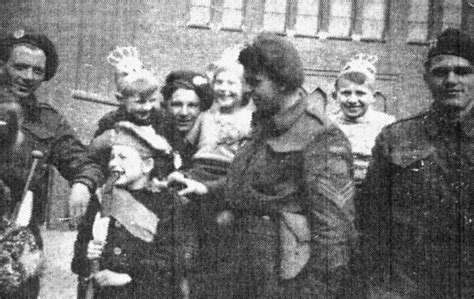
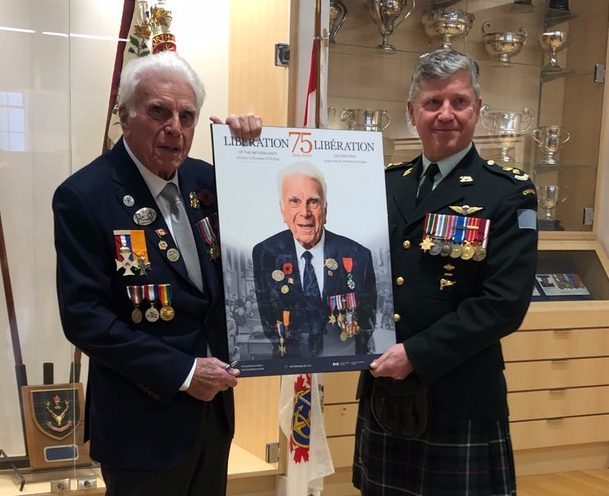
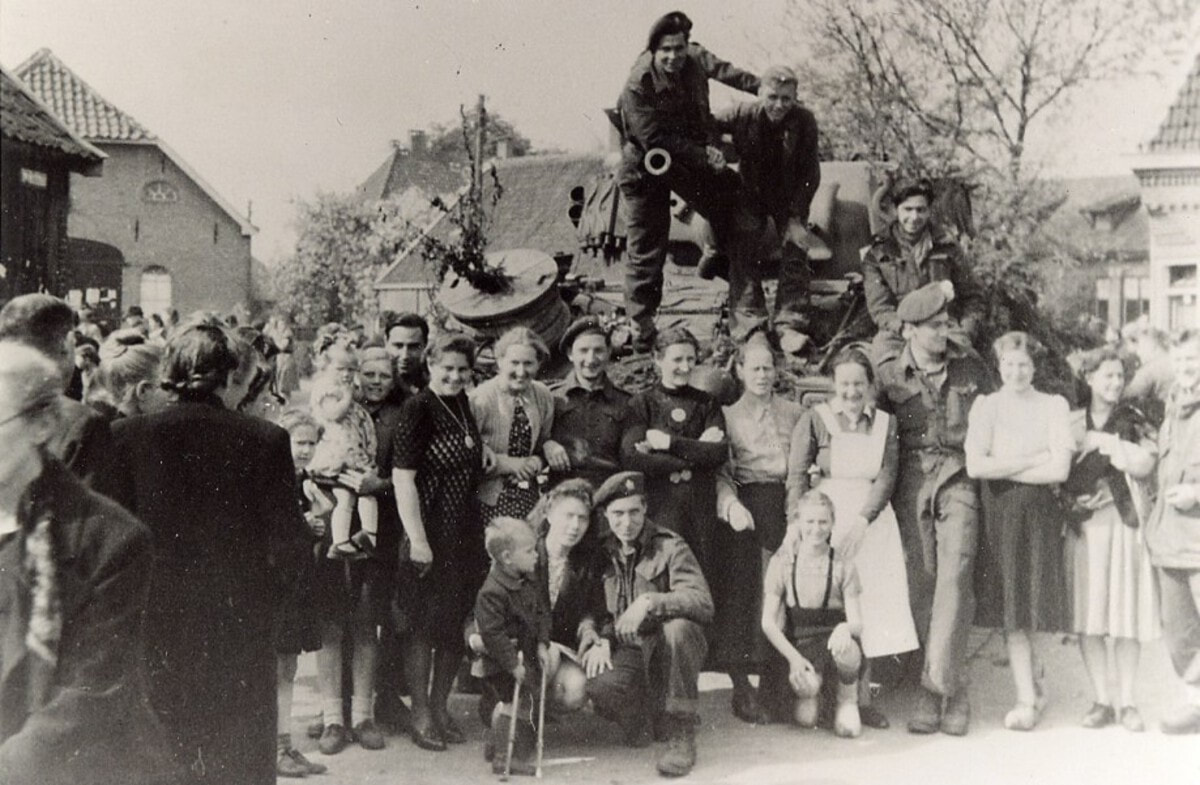
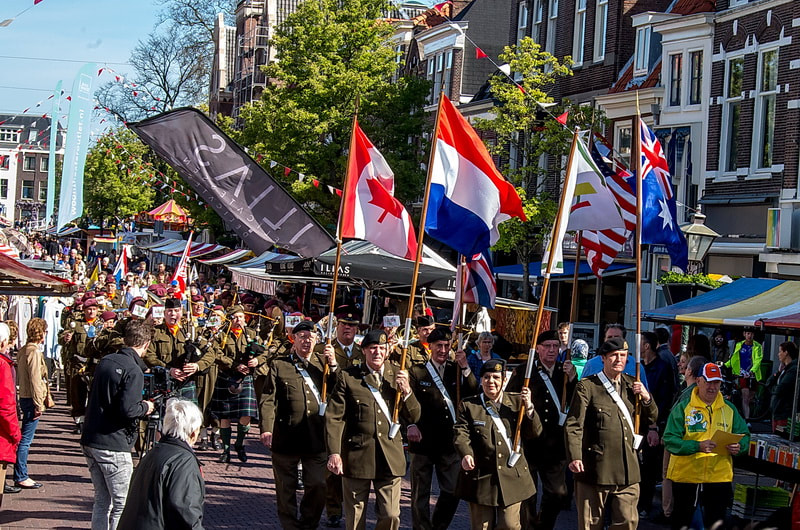
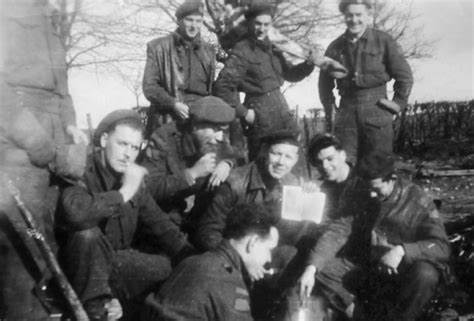
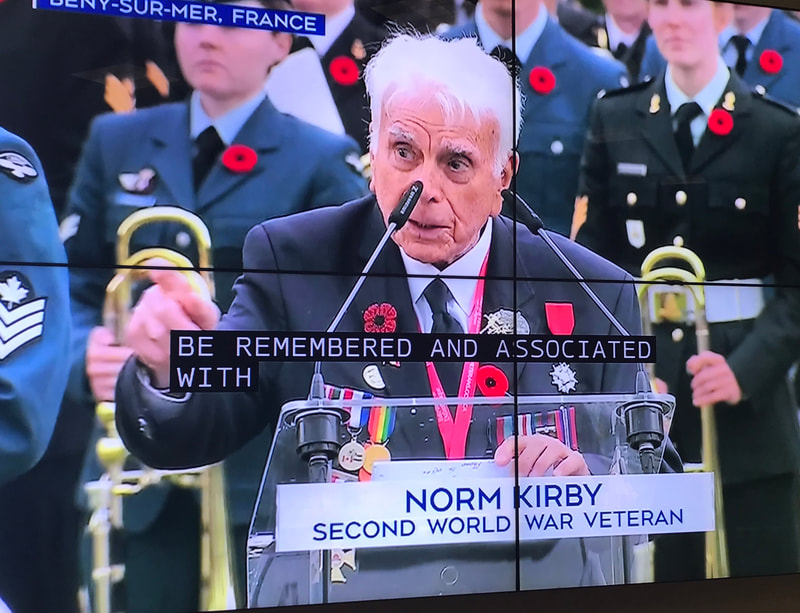
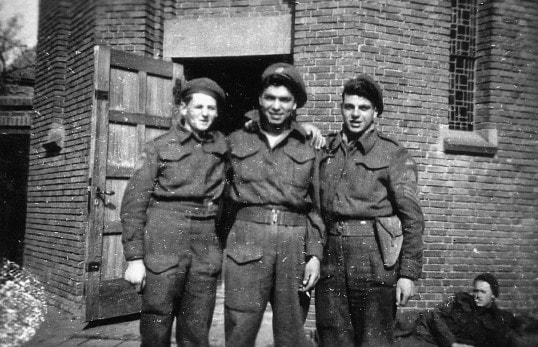

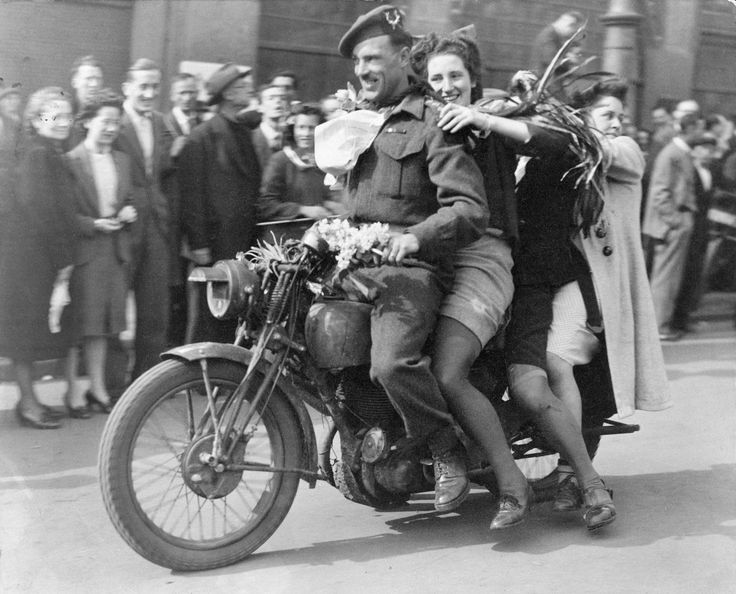
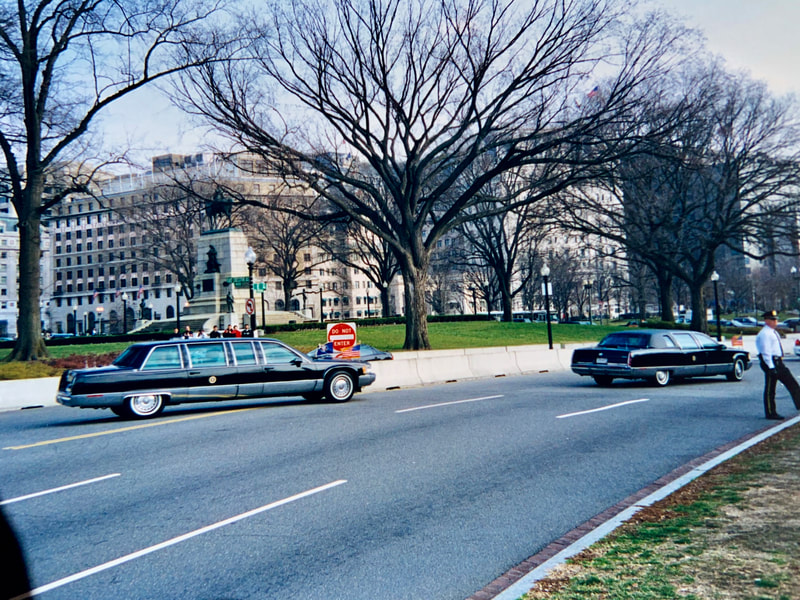
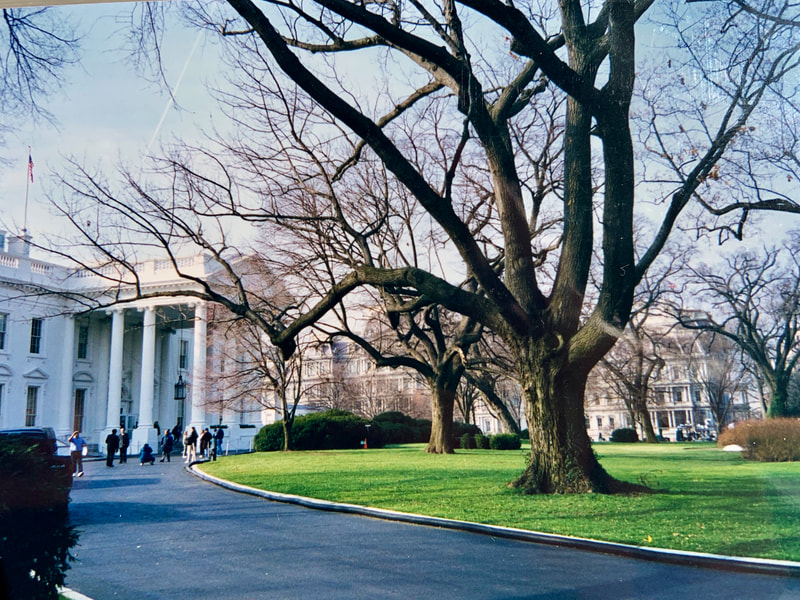
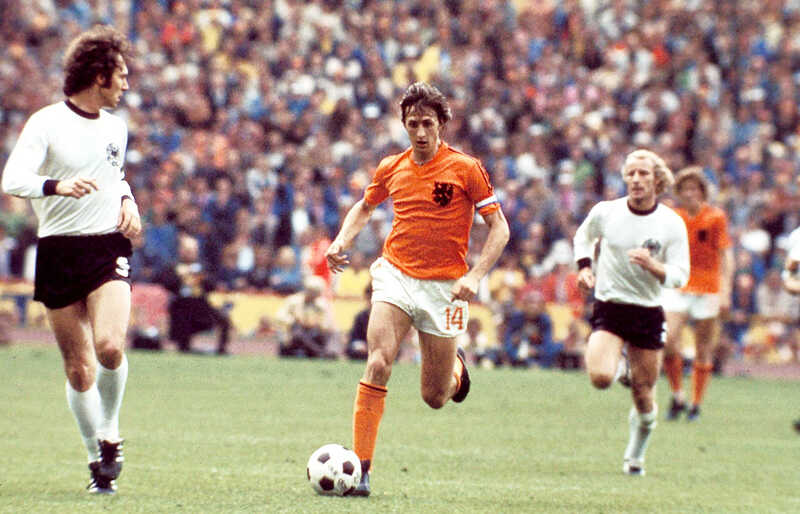
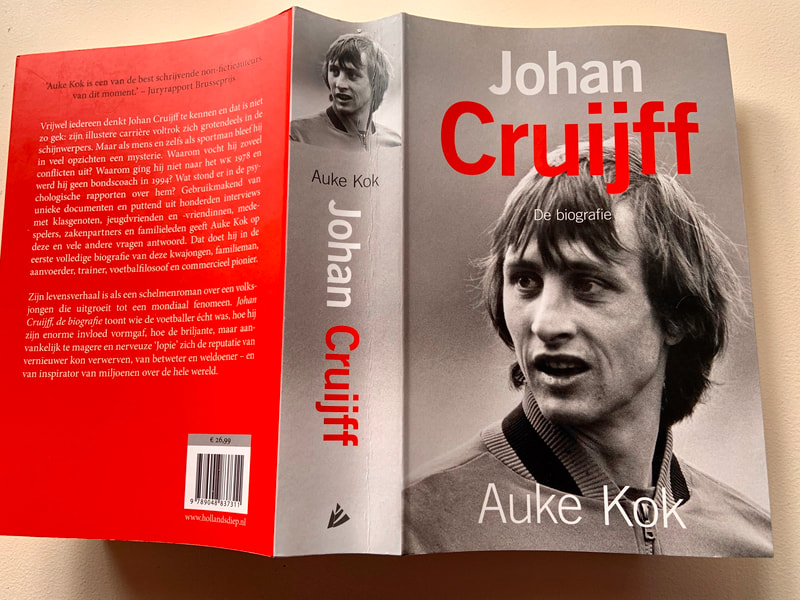
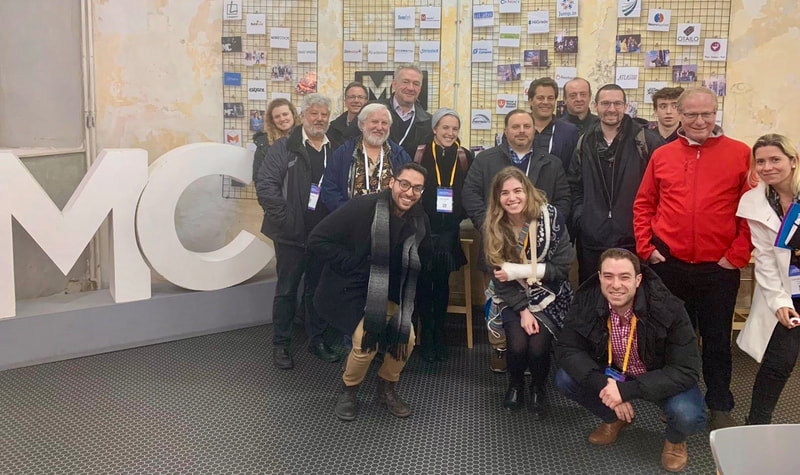


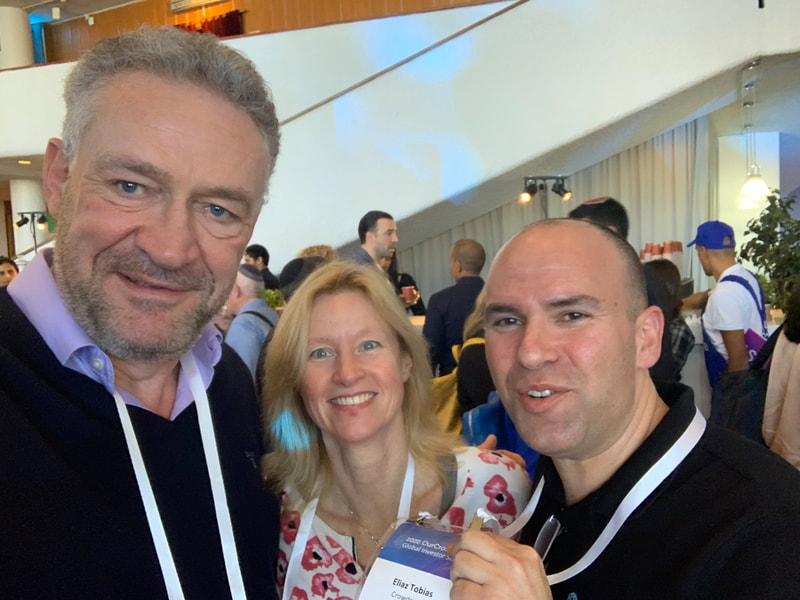
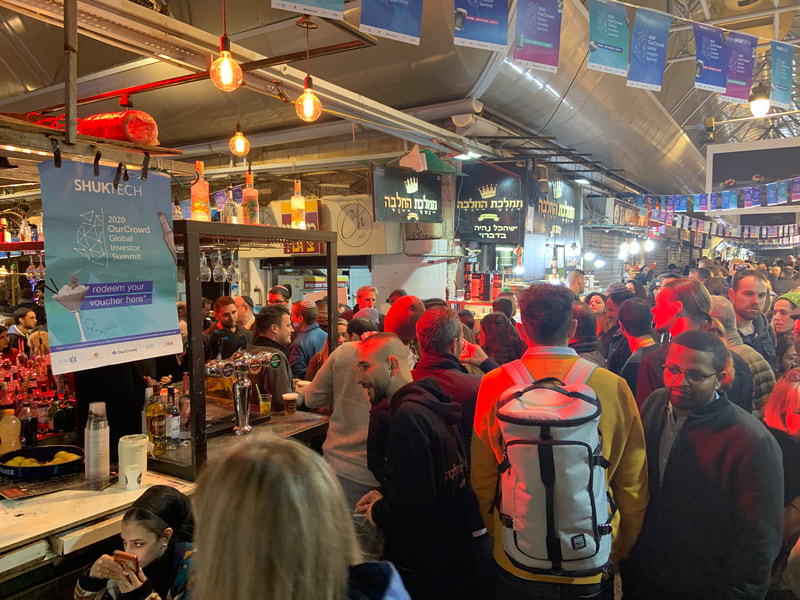

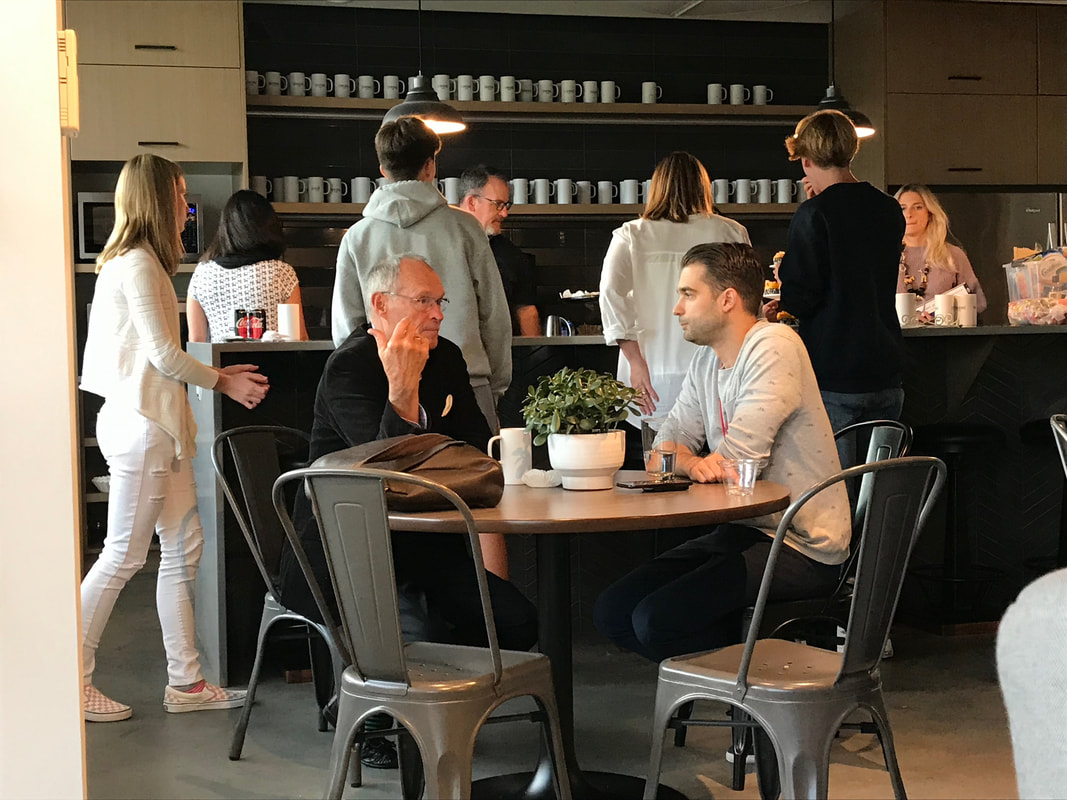


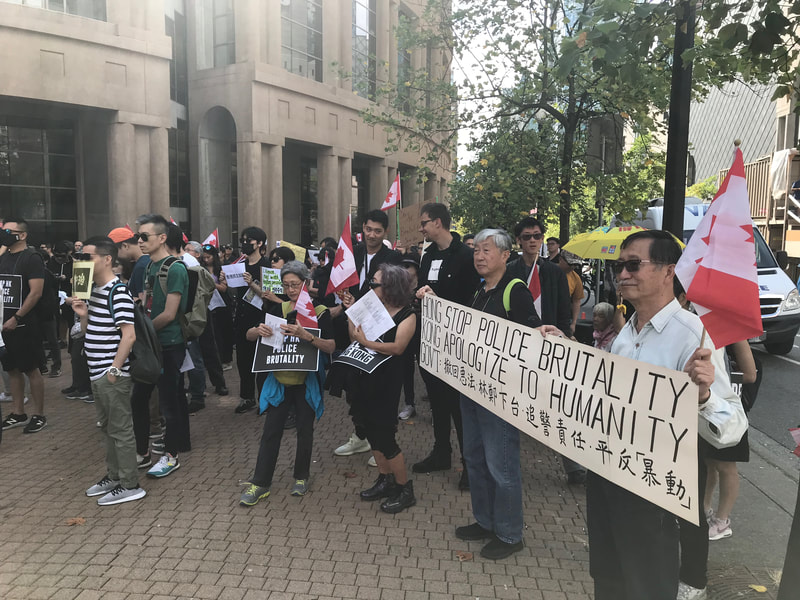

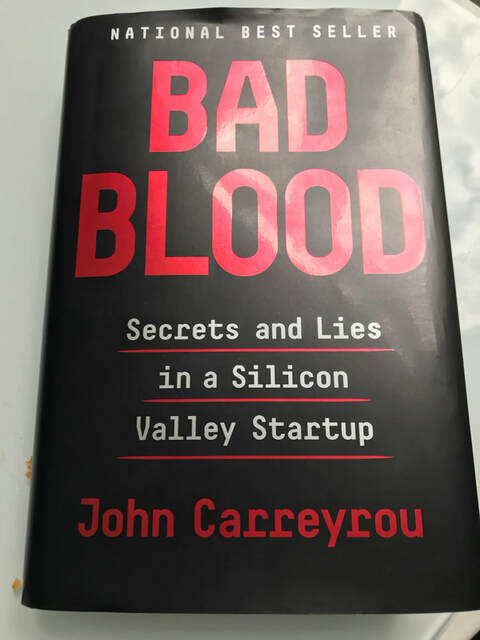
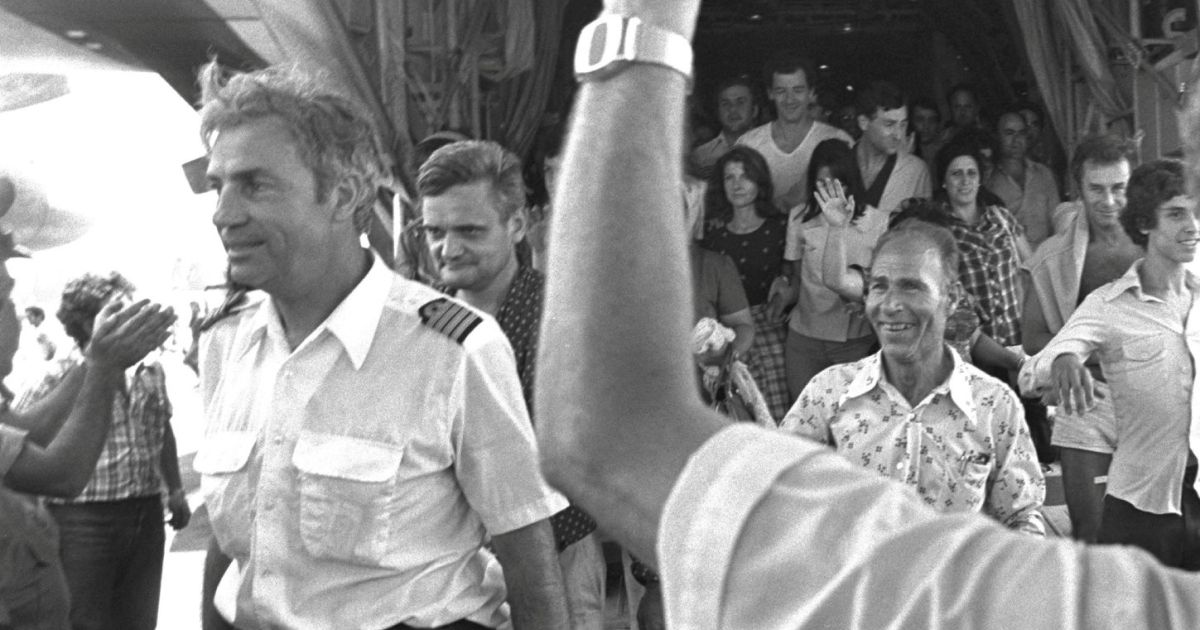
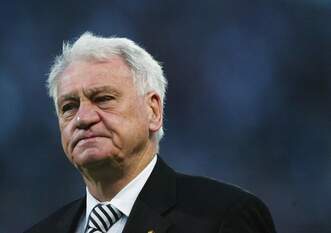
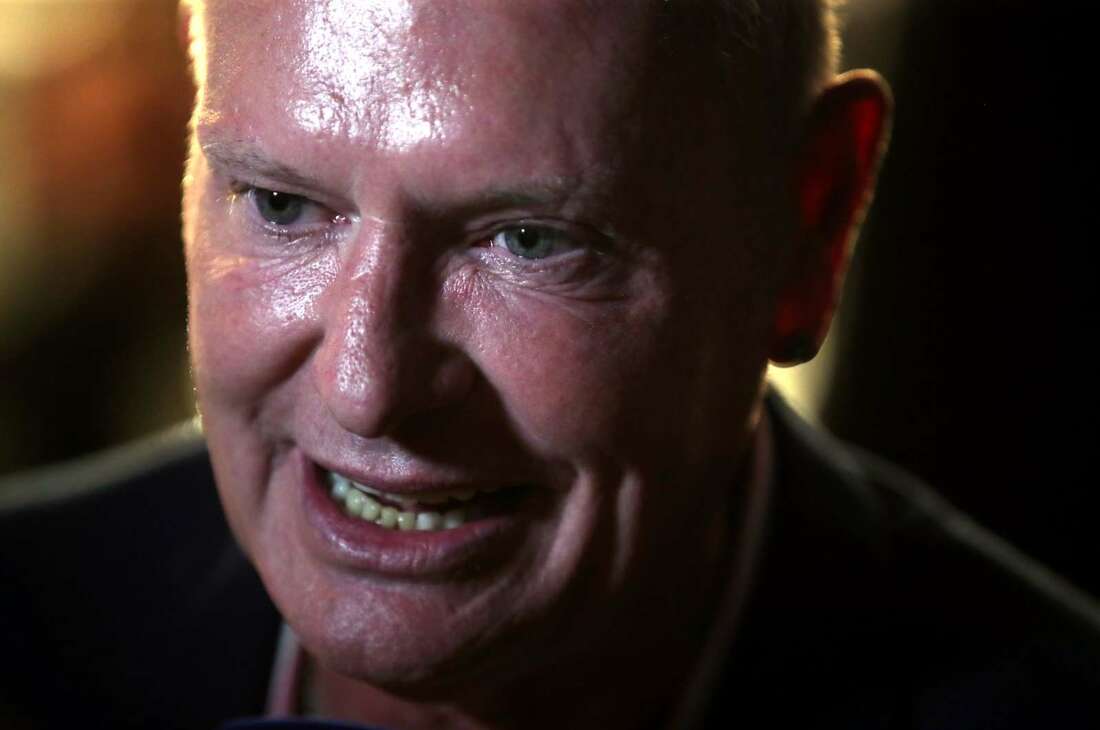



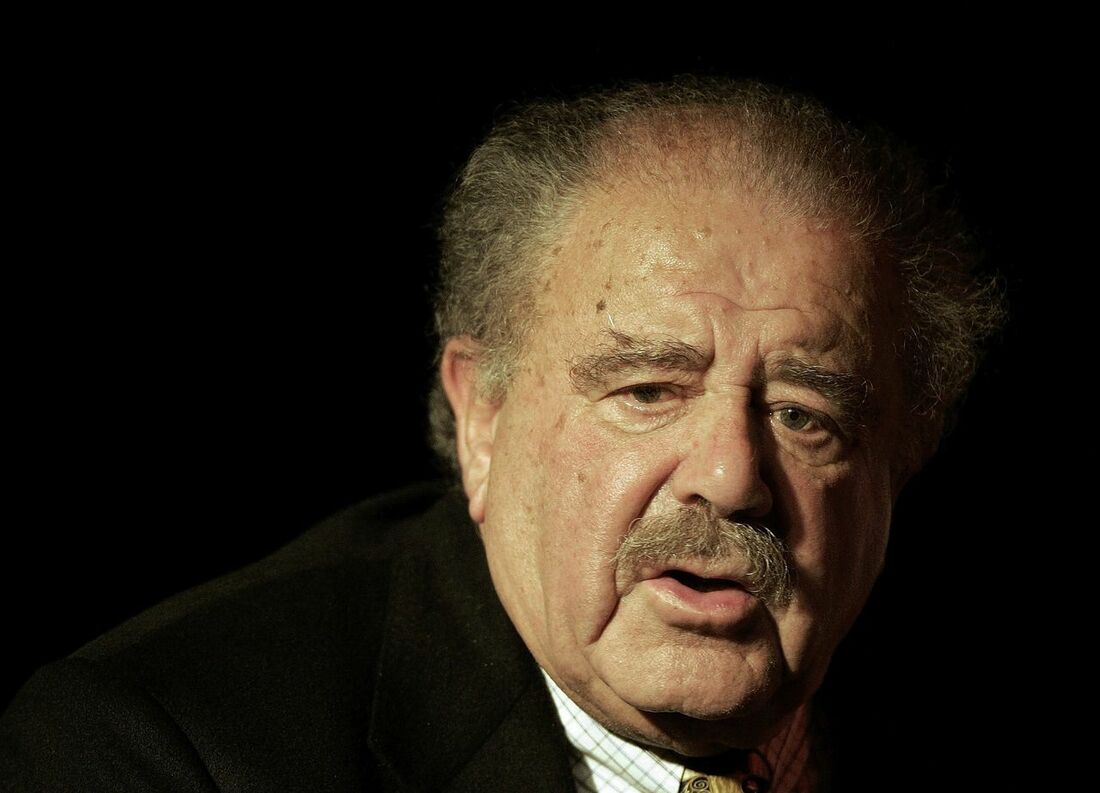
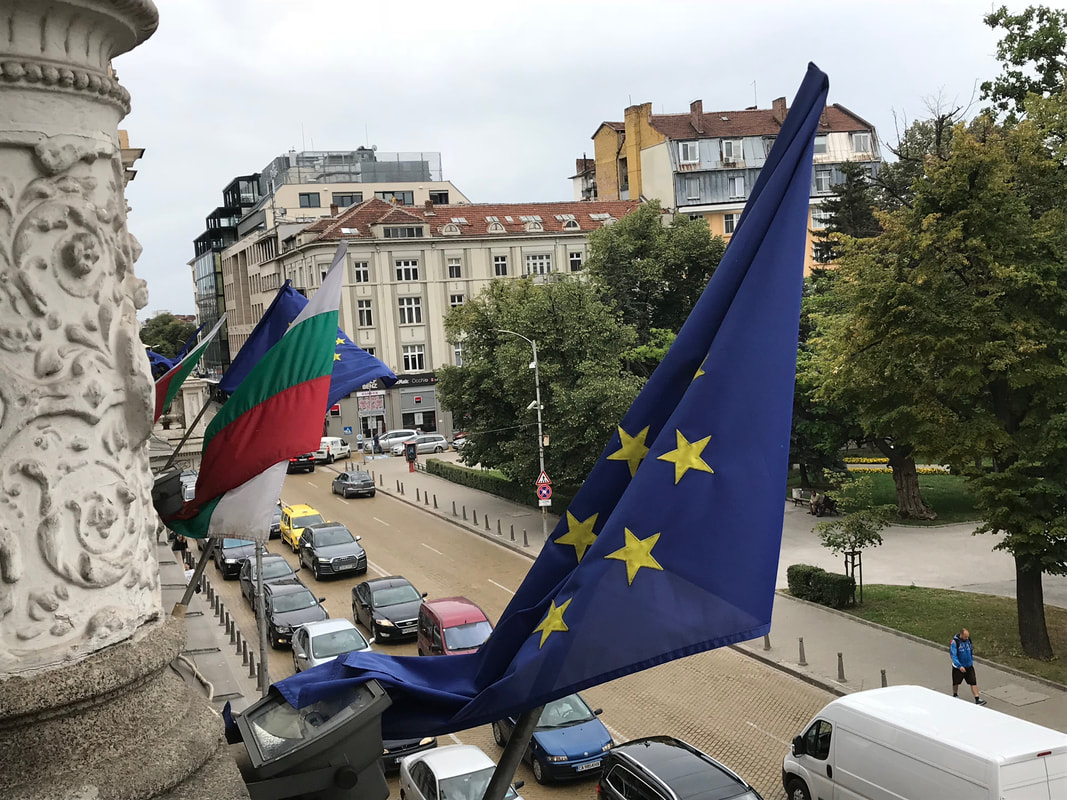
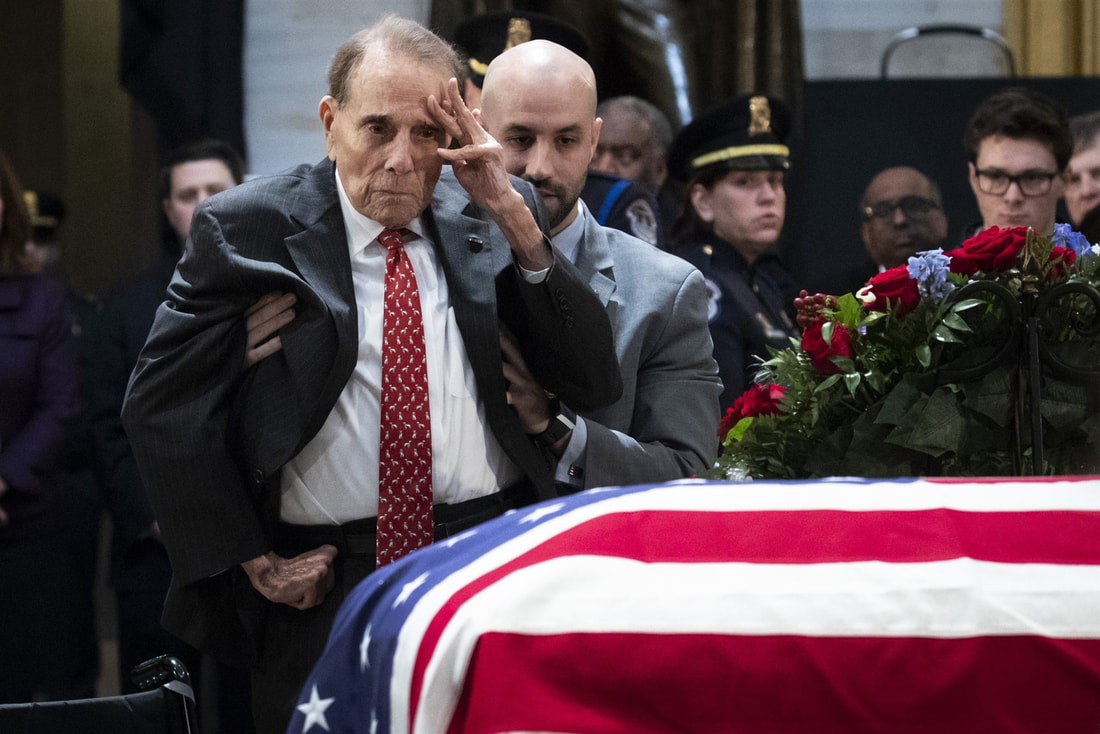
 RSS Feed
RSS Feed